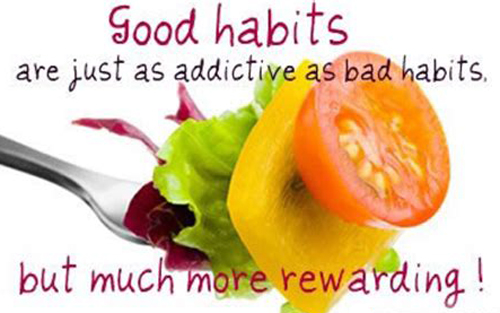Negotiating yourself into good health habits: Expert shares tips for successful manipulation of your mindset

Sticking to a healthy eating habit is challenging for most of us as it remains to be a prospect between pros and cons, psychology expert Elliot Berkman writes in a Daily Mail article. According to Berkman, the dichotomy between good and bad habits has its roots in the Western thought and has well encompassed history in classic examples such as reason versus passion among Greeks and the concept of sin and redemption among Judeo-Christian practitioners.
Berkman, a psychology professor at the University of Oregon, stresses that maintaining healthy eating habits is more than a two-way street and involves multiple facets of discipline. According to Berkman, likening the process into a battle between two sides may prove counterproductive as the human mind is designed to contain more than just two systems that work during decision making.
In order to effectively follow a healthy eating habit, Berkman suggests the following:
1. Flee from temptation – Avoiding the potential battle is perhaps the most important step in anything that involves conflict. Berkman highlights the importance of avoiding places that would otherwise prompt a person to order unhealthy food.
2. Get excited – Another way to maintain a healthy eating habit is getting excited about the prospect of eating healthy food, Berkman notes.
3. Indulge once in a while – The psychology expert stresses that indulging in treats once in a while is a crucial part of forming a healthy habit. According to Berman, some people even plan when to indulge in order to give themselves a break.
The psychology experts concludes that people’s health still depends on the choices they make.
Other hacks to trick the brain into healthy eating

Separate articles posted on Shape.com and the Positive Health Wellness website offer additional tips to coax the brain into following healthy eating habits. These tips include:
1. Go for a variety – Dr. Daniel Truong, neurologist and medical director at Orange Coast Memorial Medical Center in Fountain Valley, CA, recommends keeping your favorite treat handy as it prevents overeating if only one flavor is available. “There’s a phenomenon called flavor adaptation. If you continue to eat the same food, eventually you won’t want it as much. Humans love variety, so the more textures and tastes you have available, the more your mind wants to try it all”, Dr. Truong explains.
2. Use an unpleasant memory – The doctor also notes that recollecting unpleasant food memories, such as feeling sick after eating too many of a certain snack, may trigger food aversion and subsequent decrease in food intake.
3. Avoid the T.V. – People tend to lose focus on their meals when watching the television, which results in overeating. Temporarily disregarding the television and putting down the mobile phone may reduce unnecessary distractions and help you focus and enjoy your meal.
4. Eat slowly, chew thoroughly – People who tend to eat fast are more likely to eat more as satiety sets in much slower. Slowing down on food intake, and thoroughly chewing your food will help coax the brain into sending satiety signals.
5. Use a bigger fork – Previous studies have shown that using a larger fork helps people feel full at an earlier time. Using a bigger fork tricks the brain that the body takes in bigger food portions, which in turn results in an earlier onset of satiety.
yogaesoteric
November 10, 2018
Also available in:
 Français
Français
